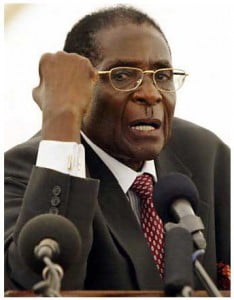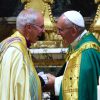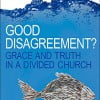This article was printed in the Winter edition of New Wine magazine, and is reproduced here by permission.
 We are confronted almost daily with the reality of evil people at large in our world. Robert Mugabe is the latest in the long line of villainous leaders to dominate headlines. President of Zimbabwe since 1980, he has inflicted untold misery on his people—so why has he been allowed to continue? It is striking that Western policy in recent years has often appeared to be shaped by response to individuals, evil leaders who need to be toppled. So the second Gulf War in Iraq was directed specifically against the regime of Saddam Hussein. And it was seen to be a triumph of Western action that Gaddafi was deposed as leader of Libya. However evil certain systems or cultures appear to be, it is evil people that we feel the need to focus on.
We are confronted almost daily with the reality of evil people at large in our world. Robert Mugabe is the latest in the long line of villainous leaders to dominate headlines. President of Zimbabwe since 1980, he has inflicted untold misery on his people—so why has he been allowed to continue? It is striking that Western policy in recent years has often appeared to be shaped by response to individuals, evil leaders who need to be toppled. So the second Gulf War in Iraq was directed specifically against the regime of Saddam Hussein. And it was seen to be a triumph of Western action that Gaddafi was deposed as leader of Libya. However evil certain systems or cultures appear to be, it is evil people that we feel the need to focus on.
Questions in Scripture
Scripture appears similarly to be concerned with evil individuals, and the challenge they offer to our understanding of God’s love and power. What will God’s response be to evil and obstinate Pharoah, oppressing and enslaving God’s people? asks the writer of Exodus. What will God do about a succession of kings of Israel and Judah who ‘do evil in the sight of the Lord’? asks the writer of 1 and 2 Kings. How can God not only allow the foreign leader Cyrus to flourish, but actually make use of him in liberating his people? asks Isaiah. What sense can we make of the tyrannical kings Nebuchadnezzar, Belshazzar and Darius as we face tyranny in our own day? asks Daniel. The questions continue to haunt us.



























